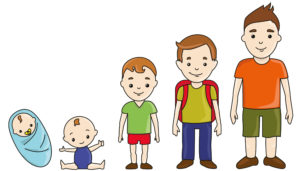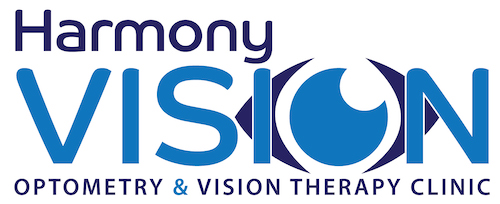An Eye for Kids Eyes – When to Have Them Checked
An Eye on Kids’ Eyes
At Harmony Vision , we are often asked, “when should I get my kids eyes checked?” Here are some guidelines.
First Check – 6 months old

A child’s first eye examination should ideally be at 6-9 months.
You might wonder – how do they read the chart,and what can you possibly check at that age?
At this age, children are developing the use of the two eyes together. They are beginning to learn to integrate the use of the two sides of their body together, and this includes their eyes. At this time, it is important to check that an infants’ eyes are developing equally and beginning to team well together. This is a critical age for when eye turns may begin to appear.
Note, if you have any family history of eye turns or lazy eye, or you have any other concerns, then you should have your baby checked immediately. We are experienced at checking babies from as young as 12 weeks old.
Harmony Vision Care has invested in the very latest technology for testing infants’ and toddlers’ eyes.
3 years old
A child’s second eye check should routinely occur at approximately 3 years old. At this time, many children are beginning to engage in more close work as they become more interested in books, colouring in and craft activities. This is an age, where the incidence of eye turns or lazy eyes also increases.
Pre-prep or Prep
At Harmony Vision, we always say “fore-warned is fore-armed”. 70% of school activities are visual, and nearly all academic tasks involve vision in some way. Having your child’s eyes checked before they start school is an important way of ensuring they have all of the required visual skills to cope in a classroom. Specifically, these include: focusing, eye teaming, tracking, and visual analysis.

Prep, Grade 1, Grade 2 and Grade 3
Between the ages of 5 and 8 a child’s visual system is maturing and developing rapidly.
At a minimum, every 2 years is recommended. However, the visual demands of a classroom also change rapidly over this time, and it is important that your child’s eyes continue to keep up with this increase. In particular, the fine eye muscle control that determines how well your child can sustain their attention on a book is still developing and fine-tuning. Fatigue and stress are common in these muscles leading to potential difficulties with near work at school.
After this age, 2 yearly checks are typically recommended.
